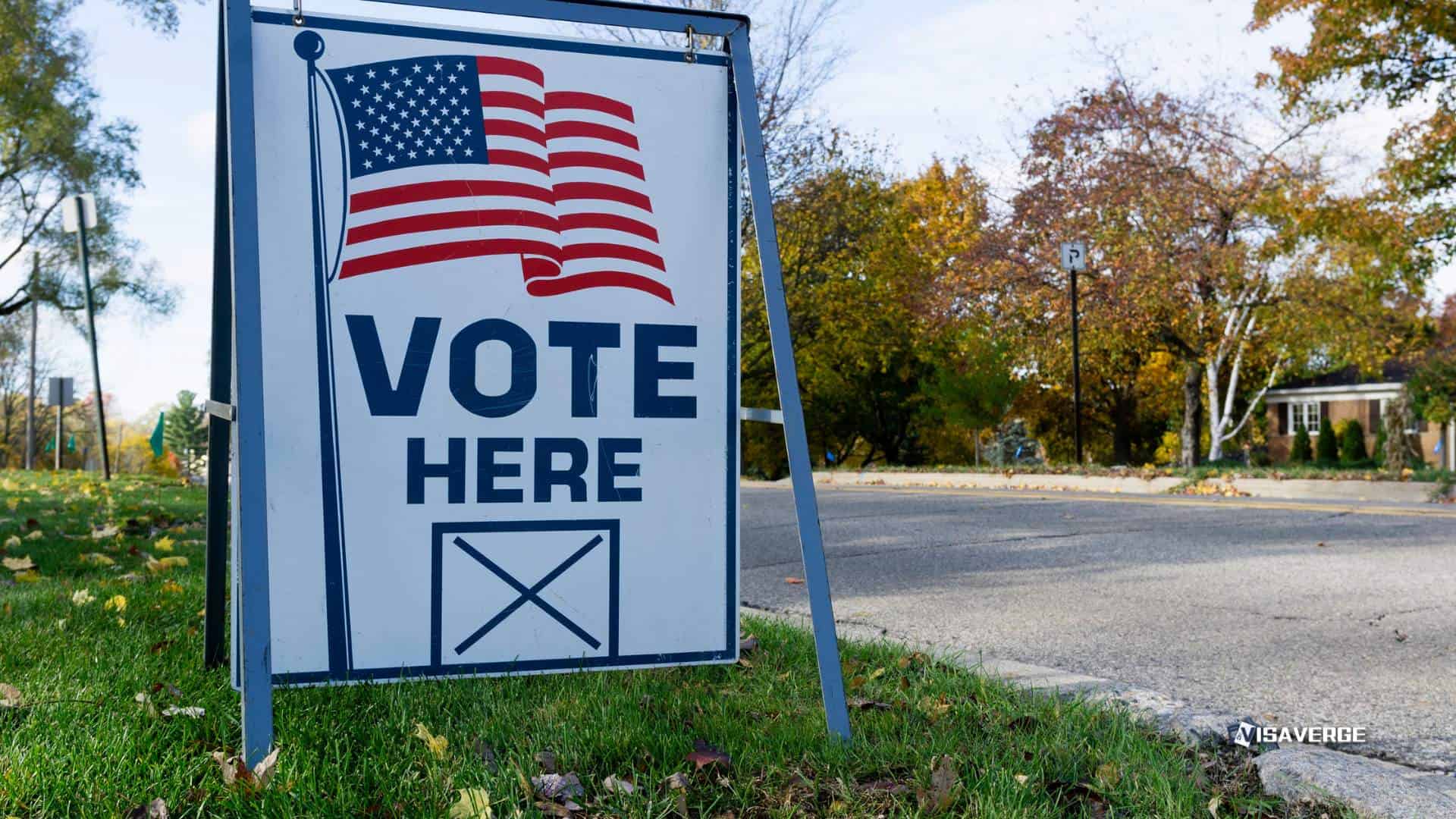Key Takeaways
• President Trump’s 2025 immigration policies include mass deportations and expanded ICE-military operations.
• Sanctuary jurisdictions in the Carolinas risk immediate federal fund loss and legal liabilities under new laws.
• New state laws increase ICE cooperation, restrict benefits, and create economic labor shortages in key sectors.
The purpose of this analysis is to provide a detailed, objective review of the impact of President Trump’s 2025 immigration policies on the Carolinas and the broader United States 🇺🇸. This report covers the scope of federal and state-level actions, the effects on immigrant communities, local governments, and the economy, and presents the most recent data and stakeholder perspectives. The analysis draws on legislative records, official statements, public opinion surveys, and government data as of July 1, 2025. The goal is to give readers a clear, fact-based understanding of how these immigration policies are shaping daily life and public institutions in North Carolina, South Carolina, and beyond.
Methodology

This report uses a combination of legislative analysis, review of executive orders, examination of public statements from key officials, and the latest available demographic and economic data. Information is sourced from government websites, public records, and reputable research organizations. Where possible, direct links to official resources are provided for further reference. The analysis also incorporates perspectives from advocacy groups, business leaders, and the general public, as captured in recent surveys and news reports.
Key Findings
- Federal immigration enforcement has intensified under President Trump, with mass deportation plans, expanded use of the military and ICE, and new restrictions on asylum and refugee entry.
- Sanctuary jurisdictions in the Carolinas face immediate loss of federal funding and new legal liabilities if they do not comply with federal immigration enforcement.
- State-level laws in North Carolina and South Carolina have increased cooperation with ICE and imposed new restrictions on public benefits, education, and housing for undocumented immigrants.
- Immigrant families, including U.S. citizen children, face increased risk of separation and loss of access to healthcare and education.
- Local economies, especially in sectors like agriculture and construction, are expected to experience labor shortages due to deportations and work permit restrictions.
- Public opinion is deeply divided, with significant concerns about safety, economic impact, and the fairness of enforcement efforts.
- Legal challenges to several executive orders and state laws are ongoing, creating uncertainty about the long-term effects of these policies.
Recent Developments in Federal and State Immigration Policy (2025)
President Trump’s 2025 immigration policies have brought major changes at both the federal and state levels. At the federal level, the administration has launched a mass deportation agenda, using the U.S. military and expanding ICE operations to remove millions of undocumented immigrants. This includes long-term residents and families, not just recent arrivals.
Key Federal Actions:
- Mass Deportations: The administration is actively removing undocumented immigrants, including entire family units. Even children who are U.S. citizens may be affected if their parents are deported.
- Sanctuary Jurisdictions: Executive orders now require the Department of Justice to publish a list of “sanctuary” states and cities. These jurisdictions face an immediate suspension of all federal funds, including grants for law enforcement, education, and public health, if they do not fully cooperate with federal immigration enforcement.
- Travel Ban Expansion: As of June 4, 2025, a new proclamation restricts or limits the entry of nationals from 19 countries, citing national security and public safety concerns.
- Refugee and Asylum Restrictions: Refugee resettlement to the United States 🇺🇸 has been suspended indefinitely. New rules make it almost impossible for most asylum-seekers to get work permits or benefits while their cases are pending.
- DACA and Healthcare: New regulations have eliminated eligibility for DACA recipients to access the ACA Marketplace, further limiting healthcare options for many immigrants.
State-Level Actions in the Carolinas:
- North Carolina Border Protection Act (Senate Bill 153): Passed by the House on June 4, 2025, this bill requires all state law enforcement agencies to sign 287(g) agreements with ICE, making “sanctuary cities” liable for crimes committed by undocumented immigrants, and barring UNC system campuses from obstructing ICE operations. It also prohibits benefits and housing assistance for undocumented residents.
- House Bill 10 (2024): Already in effect, this law requires sheriffs to check the immigration status of detainees and hold undocumented individuals for up to 48 hours for ICE pickup.
- Pending Gubernatorial Action: Both S.B. 153 and a companion bill are awaiting action from Governor Josh Stein, who has not yet issued a veto but faces pressure from both parties.
Quantitative Data and Trends
- Immigrant Population: As of 2023, there were 47.1 million immigrants in the United States 🇺🇸. North Carolina’s foreign-born population is estimated at over 900,000, while South Carolina’s is about 300,000 (2024 estimates; 2025 data pending).
- Asylum Backlog: Over 77% of asylum applications before USCIS have been pending for more than 180 days, and nearly 40% remain unresolved after two years.
- Federal Funding at Risk: Sanctuary jurisdictions in the Carolinas risk losing federal funds for law enforcement, education, and public health if they do not comply with federal immigration enforcement.
Visual Data Presentation
- Bar Chart: Immigrant Population in the Carolinas (2024 Estimates)
- North Carolina: 900,000+
- South Carolina: 300,000
- Pie Chart: Asylum Application Backlog (USCIS, 2025)
- 77% pending over 180 days
- 40% unresolved after two years
- Line Graph: Federal Funding at Risk in Sanctuary Jurisdictions
- Immediate suspension of grants and contracts for non-compliance
These visuals show the large size of the immigrant population in the Carolinas and the significant backlog in asylum cases, as well as the financial risks faced by local governments.
Comparisons, Trends, and Patterns
- Enforcement Trends: The Trump administration’s approach marks a sharp increase in enforcement compared to previous years. The use of military resources and expanded ICE operations is unprecedented in recent history.
- State vs. Federal Policy: North Carolina and South Carolina have moved quickly to align with federal priorities, passing laws that require local law enforcement to cooperate with ICE and restrict benefits for undocumented immigrants.
- Public Benefits and Education: Access to public benefits, housing, and education for undocumented immigrants is being systematically reduced. DACA recipients, who previously had access to healthcare through the ACA Marketplace, are now excluded.
- Economic Impact: Labor shortages are expected to worsen in sectors that rely heavily on immigrant workers, such as agriculture, construction, hospitality, and healthcare. According to a June 2025 Pew survey, 53% of Americans expect these immigration policies to increase taxpayer costs, and 46% believe they will weaken the economy.
Stakeholder Perspectives
- Governor Josh Stein (NC): Has not yet vetoed the new immigration bills but is under pressure from both parties. His spokesperson stated he supports deporting those who commit crimes and are in the country illegally.
- Senate Leader Phil Berger (NC, Republican): Stated, “North Carolina is one step closer to increasing the safety of every citizen in the state… harboring criminal illegal aliens will not be tolerated in our state.”
- Democratic Sen. Sophia Chitlik (Durham County): Criticized the bills for vilifying immigrants and making communities less safe by fostering fear and distrust of law enforcement.
- Trump Administration Officials: Tom Homan, appointed “border czar,” has stated mass deportations will include entire family units, even if children are U.S. citizens.
Public Opinion:
– 41% of Americans expect less crime as a result of these policies, 20% expect more, and 37% see little impact.
– Half of Americans say the deportation efforts are “too careless,” while 39% say they are “about right.”
Legal and Advocacy Group Responses:
– Several executive orders, including those closing the southern border and restricting asylum, are facing court injunctions and ongoing litigation.
– Immigrant rights organizations warn of increased fear, mental health crises, and family hardship, while some business groups express concern about workforce disruptions and economic losses.
Policy Implications and Practical Effects
For Immigrants:
– Increased Detentions and Deportations: Families, including U.S. citizen children, face separation or removal. Fear of law enforcement is rising, leading to underreporting of crimes and reduced community trust.
– Loss of Benefits: Access to public benefits, housing assistance, and healthcare is being systematically restricted for undocumented immigrants and DACA recipients.
– Barriers to Education: UNC system campuses are barred from providing sanctuary or resisting ICE enforcement, and in-state tuition or other benefits for undocumented students are under threat.
For Local Governments and Institutions:
– Legal and Financial Liability: Sanctuary cities can be sued by victims of crimes committed by undocumented immigrants; localities risk losing federal funding if they do not comply with enforcement mandates.
– Law Enforcement: All sheriffs and police must check immigration status and cooperate with ICE, with non-compliance subject to prosecution and loss of resources.
For the Economy and Workforce:
– Labor Shortages: Mass deportations and work permit restrictions are expected to worsen labor shortages in key industries.
– Economic Impact: Many Americans believe these policies will increase costs and weaken the economy.
Procedures and Compliance Requirements
- Law Enforcement: All North Carolina law enforcement agencies must sign 287(g) agreements with ICE, check immigration status of detainees, and hold undocumented individuals for up to 48 hours for ICE pickup. More information on the 287(g) program can be found on the U.S. Immigration and Customs Enforcement website.
- Universities: UNC campuses must comply with ICE and cannot obstruct enforcement actions or provide sanctuary.
- Local Governments: Must verify that public benefits and housing assistance are not provided to undocumented immigrants and face lawsuits and funding cuts for non-compliance.
Future Outlook and Pending Developments
- Governor’s Decision: The fate of North Carolina’s new immigration bills depends on whether Governor Stein signs or vetoes them. A veto override would require at least one Democratic defection in the legislature.
- Federal Regulations: The Trump administration is expected to finalize rules further restricting asylum, work permits, and public benefits for immigrants in the coming months.
- Legal Battles: Ongoing court challenges may delay or block some executive actions, particularly those affecting asylum and family reunification.
Limitations of This Analysis
- Data Lag: Some population and economic data are from 2024, as 2025 figures are not yet available.
- Legal Uncertainty: Many policies are subject to ongoing court challenges, which may change their implementation or impact.
- Rapid Policy Changes: Immigration policy is changing quickly at both the federal and state levels, so some details may shift after publication.
Conclusion and Evidence-Based Takeaways
President Trump’s 2025 immigration policies are driving major changes in the Carolinas and across the United States 🇺🇸. These changes include stricter enforcement, new legal risks for local governments, and far-reaching effects on immigrant families, local economies, and public institutions. While supporters argue these policies improve safety and uphold the law, critics warn of increased fear, family separation, and economic harm.
Actionable Guidance:
- Immigrants and families should stay informed about their rights and seek legal help if facing detention or deportation.
- Local governments and institutions must review compliance with new laws to avoid legal and financial penalties.
- Employers in affected industries should prepare for possible labor shortages and consider ways to support their workforce.
- Community members can access official resources for up-to-date information, such as the U.S. Citizenship and Immigration Services (USCIS) website.
As reported by VisaVerge.com, the situation remains fluid, with key decisions pending at both the state and federal levels and significant legal and political battles underway. Staying informed and prepared is essential for all stakeholders affected by these sweeping immigration policies.
Learn Today
ICE → U.S. Immigration and Customs Enforcement, responsible for enforcing immigration laws and deportations.
Sanctuary Jurisdictions → Areas limiting cooperation with federal immigration enforcement, often risking federal fund withdrawal.
287(g) Agreements → Federal agreements allowing local law enforcement to enforce immigration laws and collaborate with ICE.
DACA → Deferred Action for Childhood Arrivals program protecting eligible undocumented immigrants from deportation.
Asylum → Protection granted to foreign nationals fleeing persecution, requiring legal approval and work permit eligibility.
This Article in a Nutshell
Trump’s 2025 immigration policies revolutionize enforcement with mass deportations and sanctuary fund cuts. Carolinas face legal and economic challenges amid divided public opinion and ongoing legal battles shaping immigrant life.
— By VisaVerge.com







